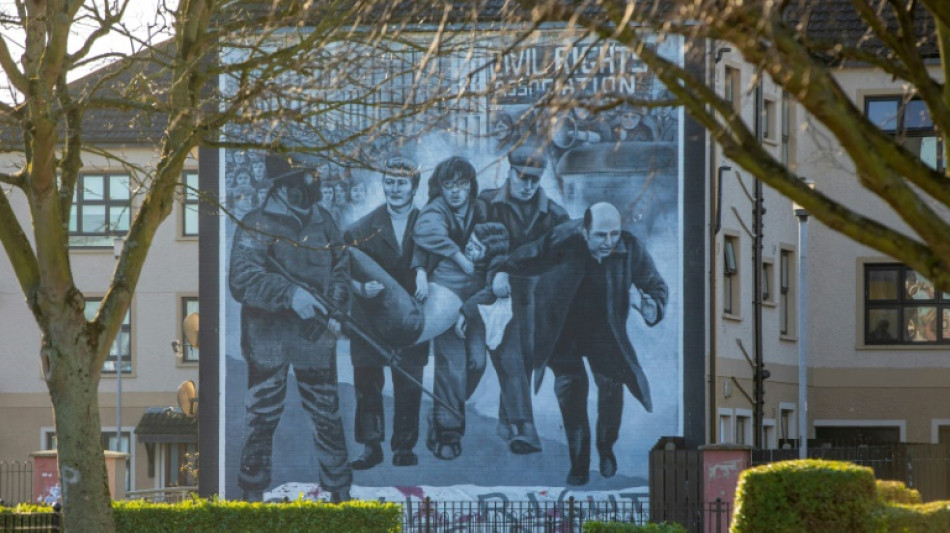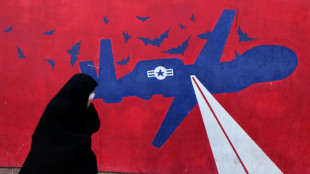
-
 Vonn to provide injury update as Milan-Cortina Olympics near
Vonn to provide injury update as Milan-Cortina Olympics near
-
France summons Musk for 'voluntary interview', raids X offices

-
 Stocks mostly climb as gold recovers
Stocks mostly climb as gold recovers
-
US judge to hear request for 'immediate takedown' of Epstein files

-
 Russia resumes large-scale strikes on Ukraine in glacial temperatures
Russia resumes large-scale strikes on Ukraine in glacial temperatures
-
Fit-again France captain Dupont partners Jalibert against Ireland

-
 French summons Musk for 'voluntary interview' as authorities raid X offices
French summons Musk for 'voluntary interview' as authorities raid X offices
-
IOC chief Coventry calls for focus on sport, not politics

-
 McNeil's partner hits out at 'brutal' football industry after Palace move collapses
McNeil's partner hits out at 'brutal' football industry after Palace move collapses
-
Proud moment as Prendergast brothers picked to start for Ireland

-
 Germany has highest share of older workers in EU
Germany has highest share of older workers in EU
-
Teen swims four hours to save family lost at sea off Australia

-
 Ethiopia denies Trump claim mega-dam was financed by US
Ethiopia denies Trump claim mega-dam was financed by US
-
Norway crown princess's son pleads not guilty to rapes as trial opens

-
 Russia resumes strikes on freezing Ukrainian capital ahead of talks
Russia resumes strikes on freezing Ukrainian capital ahead of talks
-
Malaysian court acquits French man on drug charges

-
 Switch 2 sales boost Nintendo profits, but chip shortage looms
Switch 2 sales boost Nintendo profits, but chip shortage looms
-
China to ban hidden car door handles, setting new safety standards

-
 Switch 2 sales boost Nintendo results but chip shortage looms
Switch 2 sales boost Nintendo results but chip shortage looms
-
From rations to G20's doorstep: Poland savours economic 'miracle'

-
 Russia resumes strikes on freezing Ukrainian capital
Russia resumes strikes on freezing Ukrainian capital
-
'Way too far': Latino Trump voters shocked by Minneapolis crackdown

-
 England and Brook seek redemption at T20 World Cup
England and Brook seek redemption at T20 World Cup
-
Coach Gambhir under pressure as India aim for back-to-back T20 triumphs

-
 'Helmets off': NFL stars open up as Super Bowl circus begins
'Helmets off': NFL stars open up as Super Bowl circus begins
-
Japan coach Jones says 'fair' World Cup schedule helps small teams

-
 Equities and precious metals rebound after Asia-wide rout
Equities and precious metals rebound after Asia-wide rout
-
Do not write Ireland off as a rugby force, says ex-prop Ross

-
 Winter Olympics 2026: AFP guide to Alpine Skiing races
Winter Olympics 2026: AFP guide to Alpine Skiing races
-
Winter Olympics to showcase Italian venues and global tensions

-
 Buoyant England eager to end Franco-Irish grip on Six Nations
Buoyant England eager to end Franco-Irish grip on Six Nations
-
China to ban hidden car door handles in industry shift

-
 Sengun leads Rockets past Pacers, Ball leads Hornets fightback
Sengun leads Rockets past Pacers, Ball leads Hornets fightback
-
Waymo raises $16 bn to fuel global robotaxi expansion

-
 Netflix to livestream BTS comeback concert in K-pop mega event
Netflix to livestream BTS comeback concert in K-pop mega event
-
Rural India powers global AI models

-
 US House to vote Tuesday to end shutdown
US House to vote Tuesday to end shutdown
-
Equities, metals, oil rebound after Asia-wide rout

-
 Bencic, Svitolina make history as mothers inside tennis top 10
Bencic, Svitolina make history as mothers inside tennis top 10
-
Italy's spread-out Olympics face transport challenge

-
 Son of Norway crown princess stands trial for multiple rapes
Son of Norway crown princess stands trial for multiple rapes
-
Side hustle: Part-time refs take charge of Super Bowl

-
 Paying for a selfie: Rome starts charging for Trevi Fountain
Paying for a selfie: Rome starts charging for Trevi Fountain
-
Faced with Trump, Pope Leo opts for indirect diplomacy

-
 NFL chief expects Bad Bunny to unite Super Bowl audience
NFL chief expects Bad Bunny to unite Super Bowl audience
-
Australia's Hazlewood to miss start of T20 World Cup

-
 Bill, Hillary Clinton to testify in US House Epstein probe
Bill, Hillary Clinton to testify in US House Epstein probe
-
Cuba confirms 'communications' with US, but says no negotiations yet

-
 Iran orders talks with US as Trump warns of 'bad things' if no deal reached
Iran orders talks with US as Trump warns of 'bad things' if no deal reached
-
From 'watch his ass' to White House talks for Trump and Petro


'Bloody Sunday': 10 minutes of killing that shook N.Ireland
"Bloody Sunday" was a turning point in three decades of violence in Northern Ireland known as the "Troubles".
On Sunday January 30, 1972, British paratroopers shot dead 13 Catholic demonstrators in the province's second city, Londonderry.
Here is how events unfolded:
- Peaceful march -
The Northern Ireland Civil Rights Association (NICRA) organised an anti-internment march to take place that day in the city Catholics call Derry.
They were angry at the increasing internment without trial of Catholic nationalists since the previous August.
The march was illegal. Northern Ireland's Protestant authorities had declared a year-long ban on all marches amid spiralling unrest since civil rights protesters began demanding an end to voting, housing and job discrimination against the minority Catholic community in 1968.
Nevertheless, at least 15,000 people joined the march, which set off in a carnival-like mood from the Creggan Estate, a few kilometres from the city centre, through the Catholic Bogside district to Guildhall Square.
Crack troops from the British 1st Battalion Parachute Regiment, drafted in that day, were waiting at barricades to stop the march reaching the city centre.
- Confrontation -
A section of the crowd turned into William Street and youths began throwing stones at a British army barricade.
Troops were ordered to begin arrests and armoured cars drove into the crowd.
Around 4:10 pm soldiers started firing.
Within about 10 minutes 13 people were dead and a further 15 injured. Six of the dead were aged 17.
- 'Whitewash' -
The troops claimed to have come under sustained gunfire as well as attacks with nail bombs. They said they aimed away from the demonstrators.
Their claims, largely accepted in the official report by senior English judge John Widgery, published later that year, were not backed up by independent accounts.
No soldiers were injured in the operation and no guns or bombs recovered.
The victims' families derided the report as a "whitewash".
- Explosion in violence -
The killings proved a boon to the nascent Provisional Irish Republican Army, fighting for Northern Ireland's reunification with Ireland, whose ranks swelled with new recruits.
On February 2, an angry crowd set fire to the British embassy in Dublin.
On March 24, London suspended the Protestant-dominated Northern Ireland provincial government, leading to decades of direct rule from the British capital.
- Apology -
In June 2010 a new report published after a 12-year investigation said British troops fired first and had given misleading accounts of what happened.
The report by senior British judge Mark Saville concluded that none of the victims was armed, soldiers gave no warnings before opening fire and the shootings were a "catastrophe" for Northern Ireland and led to increased violence.
Following the report then British prime minister David Cameron apologised for the killings, saying: "There is no doubt... what happened on 'Bloody Sunday' was both unjustified and unjustifiable. It was wrong."
- Ex-soldier charged -
On March 14, 2018 an ex-paratrooper, known only as Soldier F, was charged with murdering two people and the attempted murder of four others.
But the charges were dropped in July 2021 after a backlash by MPs from Britain's ruling Conservative Party.
"Bloody Sunday", immortalised by a song by Irish rock group U2, was one of the darkest episodes in the conflict between Northern Ireland's Catholic nationalists -- who want a united Ireland -- and Protestant unionists loyal to Britain.
H.Darwish--SF-PST

